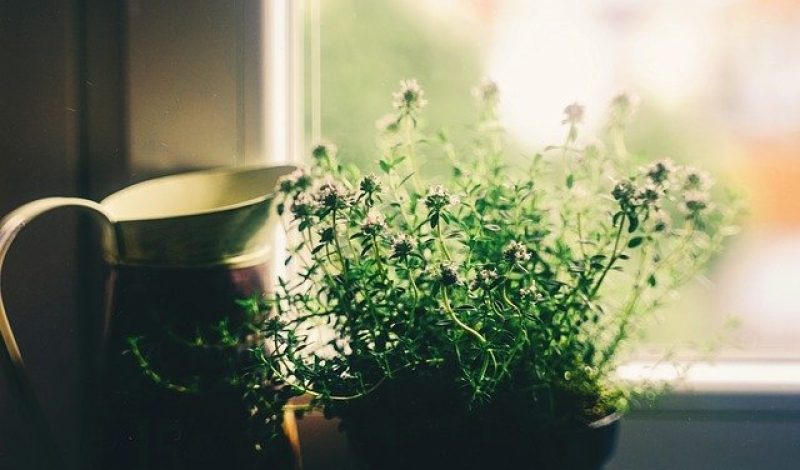Positive Time With Plants
As a busy chiropractic clinic in Cheltenham, we see a lot of people with aches and pains. Sometimes those people also have additional stresses in their lives which have a negative effect on their mental health. As chiropractors, we want to encourage our patients to stay positive about their condition and life in general.
With recent world events, there seems to be a gardening revolution happening. Whilst people have been spending more time at home in recent months, more people are spending more time in the garden. It could be said that gardening is no longer the hobby of the retired population, it is the growing pastime of the millennials. Millennials have been nicknamed the “Wellness generation” spending more of their earnings on health, fitness and organic foods, so how can plants help our wellbeing?

Benefits of nature
Plants have long been linked to improving mental and indeed physical health: Cyrus the Great, instructed the creation of gardens in the hectic capital of Persia, we’re talking 500BC. According to a survey by Arboretum, 56% of participants in London felt that plants improved their mental wellbeing. In 2014, researchers from the University of Exeter Medical School found that residents located near a green space had fewer mental health issues.

In 2009, a team of Dutch researchers revealed depression, anxiety, heart disease, diabetes, asthma, and migraines were less prevalent in people who lived within half a mile of green space. Japanese researchers compared two groups: one walking through the forest; the other through a cityscape. Guess which group showed a 16% reduction in the stress hormone cortisol?
Time to take mental health seriously
According to the Mental Health First Aid England (MHFA). Mental illness is the second-largest health problem in England. The Mental Health Research Charity (MQ Mental Health) states that 75% of mental illnesses begin in childhood with a wait time of 10 years for accessing effective treatment. According to MHFA the vast majority receive no treatment. The life expectancy of a mentally unwell patient is 10 to 20 years less than the average. Just 6% of UK health research budget goes on mental health, 22 times less than cancer and 14 times less than dementia.
So where do plants and gardening come in?
A study by Petty et al. in 2003 showed that exercise in nature is linked to an increase in self-worth, positive mood and independence (Pretty et al. 2003; Countryside Recreation Network 2005). An assessment of nature gyms conducted by the British Trust for Conservation Volunteers in 2002 revealed a decrease in symptoms on the Hospital Anxiety and Depression Scale.

It seems the NHS is waking up to the benefits of holistic therapy, addressing not just the illness but also the social, economic and cultural effects on our health. In January 2019, the NHS Long term Plan was set out, this allows GPs to support patients through ‘social prescribing’ or community referral. While, art, music and other courses are available, gardening or walking in green spaces is a key aspect of this holistic therapy. In addition, social prescribing can tackle mental health problems in the early stages by addressing isolation, giving patients a worthwhile focus and a support network.
Mental Health Foundation claims that early intervention and treatment in the community setting could save the NHS approximately £38 million per year in England. So, it’s no surprise that horticultural organisations are becoming more mainstream, such as forest schools for primary school children and horticultural therapy to support people with a range of mental health conditions from anxiety to addiction. Here are some examples of community garden projects:
If you are looking around the bare walls of your house now wishing it resembled a jungle, have no fear, here are my favourite house plants to create a zen atmosphere in your home. All of them require minimal maintenance and seem to thrive off minimal interference.
Easy to look after indoor plants to improve your mental health

- Monstera Deliciosa – the Swiss Cheese Plant
- Pothos – Devil’s Ivy
- Calathea Zebrina – the Zebra plant
- Begonia Maculata – the Polka dot plant
- Sanseviera – the Snake plant
Grow your own kitchen garden:
How many times have you bought fresh herbs from the supermarket in a packet, only to forget about it and for it to go rotten in your fridge? Well, you may have watched 31 year old Max La Mana, a zero-waste vegan chef, teach us how to regrow our veg for free on the BBC. Or perhaps you bought one of the many home herb kits available online and delivered to your doorstep. The conclusion is, it’s really easy to do and a lot cheaper in the long run, never mind the sense of satisfaction, the mindfulness and the delicious smells they produce. What are you waiting for?
- Basil
- Mint
- Thyme
- Rosemary
- Bay leaves
- Coriander
Top tip: pick the lower leaves and it will stimulate growth.

Visit your local green spaces
Batsfood Arboretum and Garden Centre
Check out this Ted Talk on Ron Finley, the gangsta gardener who has built an urban community garden. https://www.youtube.com/watch?v=EzZzZ_qpZ4w
Sources
https://news.sanfordhealth.org/sanford-health-plan/millennials-wellness-generation/
https://metro.co.uk/2019/03/27/experts-tell-us-surrounding-plants-can-help-mental-health-9036358/
http://www.exeter.ac.uk/news/featurednews/title_349054_en.html
https://www.nationalgeographic.com/magazine/2016/01/call-to-wild/
https://mhfaengland.org/mhfa-centre/research-and-evaluation/mental-health-statistics/#impact
https://www.mqmentalhealth.org/posts/12-statistics
https://www.tcv.org.uk/wp-content/uploads/2012/04/green-gym-evaluation-full.pdf
https://www.networks.nhs.uk/nhs-networks/regional-mental-health-workshop….
https://www.kingsfund.org.uk/publications/gardens-and-health





